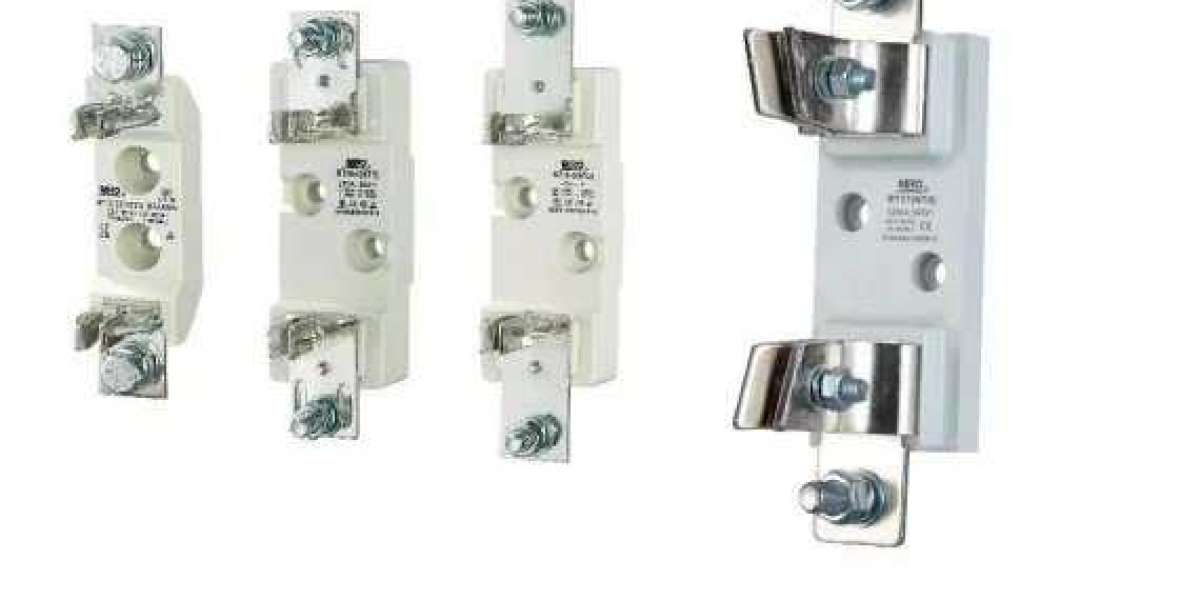Picture this - you're going about your day, minding your own business, when suddenly there's a loud pop and a puff of smoke. You rush over to investigate, only to find that the fuse base in your DC circuit has burnt out. Now you're left wondering: what caused this unexpected meltdown?
We're here to shed some light on the subject and help you understand why those pesky fuse bases go up in flames.
Common Reasons for burnt out DC fuse bases
Overloading and short-circuiting are two common reasons that can lead to burnout of DC fuse bases. Overloading occurs when the electrical load exceeds the capacity of the fuse, causing it to overheat and eventually fail. Short-circuiting happens when a low-resistance path is created between two conductors, resulting in a sudden surge of current that overwhelms the fuse.
Another factor that contributes to burnt out https://www.mirofuses.com/DC-Fuse-Base.htmlis age and wear. Like any other electrical component, fuses deteriorate over time due to constant use and exposure to heat. This deterioration weakens their ability to handle excessive currents, making them more susceptible to burnouts.
Poor installation or maintenance practices can also lead to burnt out DC fuse bases. Incorrect wiring connections or loose terminals can cause arcing, which generates high levels of heat capable of damaging the base. Inadequate cleaning or inspection routines may result in debris accumulation or corrosion buildup on the contacts, compromising their conductivity and increasing resistance.
To prevent burnout of DC fuse bases, it is crucial to properly size fuses according to the intended load requirements. Regular inspections should be conducted to ensure proper connection integrity and contact cleanliness. Adequate ventilation around fuses should be maintained as overheating accelerates wear-out processes.
By being aware of these common causes and implementing preventive measures, individuals can significantly reduce instances of burned-out DC fuse bases in their electrical systems.

Overloading and Short-circuiting
Overloading and short-circuiting are two of the most common reasons that can lead to the burning out of DC fuse bases. When too much current flows through a circuit, it puts excessive strain on the fuse base, causing it to overheat and eventually burn out. This is known as overloading.
Short-circuiting, on the other hand, occurs when there is a direct connection between the positive and negative terminals of a power source. This creates an extremely low resistance path for current flow, resulting in a sudden surge of electricity. The high amount of current passing through the circuit can overwhelm the fuse base and cause it to burn out.
Both overloading and short-circuiting can have severe consequences if not properly addressed. They not only pose risks to electrical equipment but also increase the likelihood of fire hazards.
To prevent burnout due to overloading or short-circuiting, it is crucial to ensure that electrical circuits are designed with appropriate load capacities in mind. Regular inspections should be carried out to identify any signs of overloading or potential shorts in wiring systems.
Additionally, using protective devices such as circuit breakers alongside fuses can provide added safety measures against these electrical issues. These devices are designed to detect abnormal currents and interrupt them before they cause damage.
Addressing issues related to overloading and short-circuiting is essential for preventing burnout of DC fuse bases. By implementing proper design practices and utilizing protective devices, individuals can significantly reduce the risk associated with these electrical faults
Age and wear of the fuse base
Age and wear of the fuse base can be another significant factor that leads to its burnout. Over time, the materials used in the construction of the fuse base may deteriorate or become damaged. This can result in a decrease in its overall performance and ability to handle electrical currents effectively.
As the fuse base ages, it is more susceptible to corrosion and rusting, which can weaken its structural integrity. Additionally, prolonged exposure to heat from electrical currents passing through the fuse base can cause thermal stress on the components, leading to cracks or other forms of damage.
Furthermore, constant use and frequent insertion/removal of fuses can gradually wear down the contacts within the fuse base. This wear and tear can cause poor contact between fuses and terminals, resulting in increased resistance and potentially generating excessive heat.
Regular maintenance and inspection are essential for detecting signs of aging or wear in DC fuse bases. If any deterioration is identified, it should be addressed promptly by replacing or repairing affected components.
By being proactive about monitoring and addressing age-related issues with DC fuse bases, you can minimize their risk of burning out prematurely due to these factors. Remember that prevention is key when it comes to maintaining safe electrical systems!

Poor installation or maintenance
Poor installation or maintenance can also contribute to the burning out of DC fuse bases. When a fuse base is not properly installed, it may not be able to handle the electrical load passing through it. This can result in overheating and ultimately cause the fuse base to burn out.
Additionally, poor maintenance practices can lead to the deterioration of the fuse base over time. If dust, dirt, or debris accumulates on the surface of the fuse base, it can hinder proper ventilation and increase heat buildup. This increased heat can significantly weaken the components of the fuse base and make them more prone to burning out.
Furthermore, if connections within the fuse holder are not securely tightened during installation or become loose over time due to inadequate maintenance, this can lead to arcing and excessive heat generation. The constant heating and cooling cycles caused by loose connections can eventually damage both internal and external components of the DC fuse base.
Regular inspections, cleaning, and tightening of connections are essential for maintaining an optimal operating condition for DC fuses bases. By ensuring that these tasks are carried out diligently, you reduce the risk of poor installation or maintenance contributing to burned-out DC fuse bases.
How to prevent burnout of DC fuse bases
Preventing the burnout of https://www.mirofuses.com/The-Advantages-of-Using-DC-Fuse-Bases-in-Solar-Power-Systems.html is crucial in maintaining the safety and efficiency of electrical systems. Here are some effective preventive measures to consider:
1. Proper Sizing: Ensure that the DC fuse base is correctly sized for the specific application. Undersized fuses can lead to overheating and potential burnout. Consult with an electrician or engineer to determine the appropriate sizing.
2. Regular Inspections: Conduct routine inspections of the fuse base, looking for signs of damage or wear such as discoloration, loose connections, or melting. Address any issues promptly to prevent further damage.
3. Adequate Ventilation: Provide sufficient ventilation around the fuse base to dissipate heat effectively. Poor ventilation can cause excessive heat buildup and increase the risk of burnouts.
4. Avoid Overloading: Never exceed the rated current capacity of a DC fuse base by connecting devices that require more power than it can handle. Distribute loads evenly across multiple circuits if necessary.
5 . Proactive Maintenance: Keep your electrical system well-maintained by conducting regular maintenance checks on all components, including checking for loose connections and cleaning away dust or debris that may interfere with proper functioning.
By implementing these preventive measures, you can significantly reduce the chances of experiencing burnt out DC fuse bases in your electrical system while ensuring its long-term reliability and safety.

Conclusion
The burnout of DC fuse bases can be caused by various factors. Overloading and short-circuiting are common culprits that put excessive strain on the fuse base, leading to overheating and eventual burnout. Additionally, the age and wear of the fuse base can contribute to its deterioration over time.
Poor installation or maintenance practices can also play a significant role in causing burnouts. It is essential to ensure proper installation techniques are followed and regular inspections are conducted to identify any potential issues before they escalate.
To prevent burnouts of DC fuse bases, it is crucial to use fuses with appropriate ratings for your electrical system's requirements. Regularly checking for signs of overload or short circuits and addressing them promptly will help maintain the integrity of the fuse base.
Furthermore, maintaining cleanliness around electrical equipment, ensuring proper ventilation, and keeping an eye out for loose connections can help prevent overheating issues that may lead to burnt out DC fuse bases.
MIRO is proud to contribute to the DC Fuse Base market by providing high-quality products that meet the needs of customers worldwide.Welcome to contact us,if you need.








